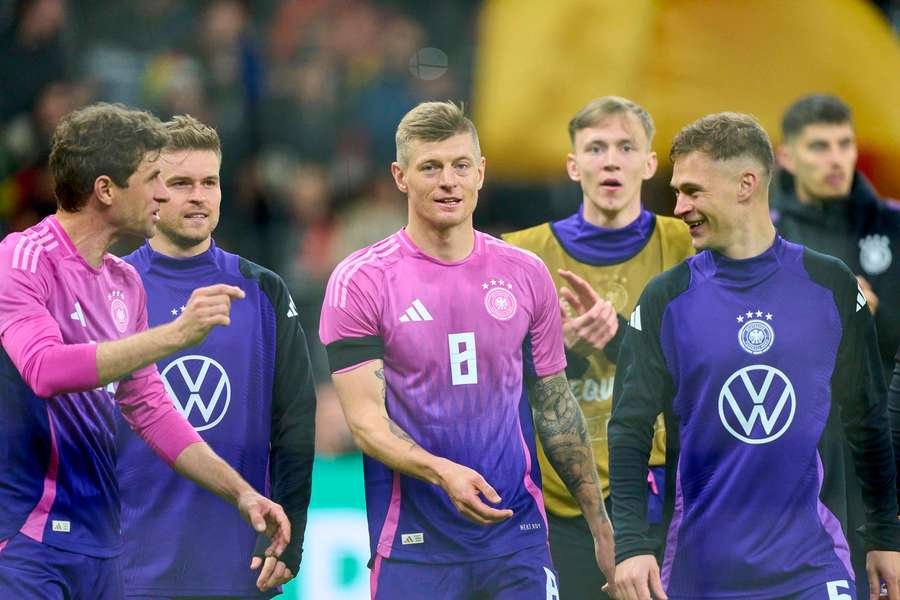Germany is gearing up to host Euro 2024, aiming to relive the magic of the 2006 World Cup, a pivotal event that transformed the nation’s image globally.
Known as the “Summer Fairytale,” the tournament marked Germany’s emergence as a vibrant, modern nation.

With Euro 2024, Germany aspires to reclaim the “fairytale” of the World Cup after eighteen years.
The competition, which is now referred to as the Summer Fairytale, is regarded as the occasion when a united Germany dispelled the ghosts of its troubled past and revealed a fresh, contemporary face to the world.
On the pitch, Jurgen Klinsmann’s German squad defeated bleak pre-tournament forecasts to reach the semifinals.
Germany ended up coming third and losing to eventual champions Italy in extra time, but their performance set the stage for a decade of domination that culminated in their World Cup victory in Brazil in 2014.
Off the field, the competition altered Germany’s perception of itself as well as how the world perceived it.
Eight years after leading Germany to World Cup victory, Philipp Lahm, a pivotal player in 2006, told AFP: “We were able to experience the entire nation standing behind the team and giving us energy.”
“The festivities are enjoyable. that people travel to Germany to participate in a large-scale celebration.”
Gunter Gebauer, a German sports sociologist and philosopher, told AFP that the competition had an immediate and significant effect.
“There was a really bad vibe in Germany before to the event. The state of the economy was not good. The football was awful and the weather was terrible. “And then the World Cup started and during Germany’s first game against Costa Rica, Philipp Lahm scored and the sun burst through it was almost like something from the Bible.”
Gebauer, who lived in a middle-class suburb of Berlin, witnessed his neighbor, who was wary of nationalism after World War II, unfold a German flag from his balcony.
“From there, we saw German flags and singing the anthem at Germany games something which just didn’t exist before.”
Visitors to the World Cup witnessed a different side of the straight, rule-enforcing Germans they were accustomed to seeing due to the dissolving of internal reservations.
Also Read: Germany Clinches 2014 FIFA World Cup Final: Gotze’s Extra Time Heroics Stuns Argentina
“Foreigners who came to Germany were delighted with the German public.”Inquiring, “Where are all the bloody Germans?” were the English. All we’ve encountered are amiable individuals who are having a good time everywhere.”
A gold medallist for Germany in rowing at the 1988 Seoul Olympics, Wolfgang Maennig is currently a sports economics professor at Hamburg University. While the economic benefits of such events were frequently insignificant, Maennig claimed in an interview with AFP that “the feel-good effect was the essence of the 2006 World Cup.”
At the time of the World Cup, “Germans were not exactly considered world leaders when it comes to being welcoming,” although since 2006 “Germany has improved significantly in international perceptions.”
“I believe that foreigners see us completely differently, no longer as unenthusiastic, somewhat peculiar people, but as open and happy, which made us more comfortable with how we see ourselves.”
Goethe University sports sociologist Jan Haut told AFP that “the German people became a bit less stiff.” When the national team won, they celebrated with greater ease and assurance.
“What was rather new was that Germans themselves became more aware that in other countries the picture of Germany isn’t as bad as the Germans had thought,” he said.
Even if the world and Germany have changed over the past eighteen years, there are still many similarities.
Germany is once more plagued by worries about the economy, infrastructure, and subpar on-field results.
Haut predicted that Germany will once more come under international scrutiny, both negatively and positively.
“In the worst case, there might be some surprises maybe that people become aware that things don’t work so well in Germany currently, like public transport.”
Following two humiliating World Cup group stage losses, Germany has shown life under head coach Julian Nagelsmann.
They only triumphed in three of their eleven games in 2023, but in March they defeated the Netherlands and France with great ease.
Maennig stated that Germany could rely on the unifying power of their national sport, regardless of the team’s performance in the competition.
“As a rower, I say this with a hint of sadness in my voice, but nothing unites people like football.” The games are shown on monitors in the cafes and restaurants, where you can sit and enjoy the convivial environment.”It’s genuinely very captivating.”





